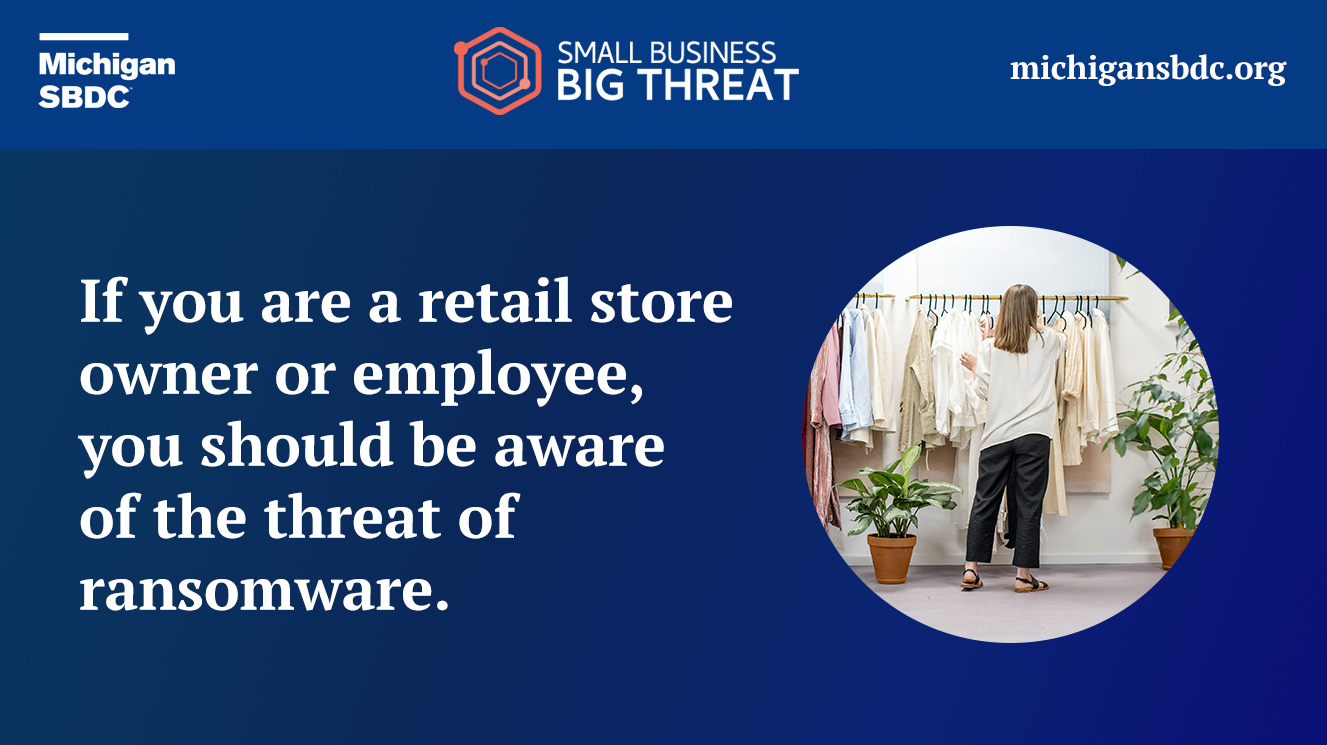 Don’t get caught singing the retail store ransom blues this holiday season. If you are a retail store owner or employee, you should be extra aware of the threat of ransomware. Especially after the release of “The State of Ransomware in Retail 2023” by Sophos. Although Sophos found that ransomware attacks have dropped slightly against retail stores from the previous years, they found that data encryptions in ransomware attacks has increased. This means when attacked, retail stores are falling victim more often despite less overall attacks. They also found that in 21% of cases where data was encrypted, the data was also stolen. This continues the trend of the double ransom that has been seen in other ransomware attacks.
Don’t get caught singing the retail store ransom blues this holiday season. If you are a retail store owner or employee, you should be extra aware of the threat of ransomware. Especially after the release of “The State of Ransomware in Retail 2023” by Sophos. Although Sophos found that ransomware attacks have dropped slightly against retail stores from the previous years, they found that data encryptions in ransomware attacks has increased. This means when attacked, retail stores are falling victim more often despite less overall attacks. They also found that in 21% of cases where data was encrypted, the data was also stolen. This continues the trend of the double ransom that has been seen in other ransomware attacks.
What is ransomware?
Ransomware is malicious software, better known as malware, that is installed onto your device or server. Once installed, ransomware will encrypt data it finds. This makes your data inaccessible to you, making it unusable. The cybercriminal will then reachout, typically via a popup on your computer or through email and request payment. This payment is usually in the form of cryptocurrency. They suggest that if you pay, they will allow you to decrypt your data. They usually give you a short deadline to decide what to do. As mentioned above and reinforced from Sophos’s findings, cybercriminals are adding a second layer to their attacks.
The changes in attacks.
As we have written about before at Security Bytes, ransomware has started to change. The cybercriminals are now stealing your data in these ransomware attacks, threatening to release your data if you do not pay the ransom. They may not even encrypt your data any longer. There is also the chance they did not steal any of your data either, but should you pay the ransom?
Paying the ransom.
This is a tough decision. Whether they encrypted your data or threatened to release it, it is your decision to make. One important thing you need to remember is, will the criminal be honest and either decrypt or not release your data? Can you actually trust them? On the other hand, can you afford not to trust them? This is why it is best to be prepared.
Get prepared.
Having a game plan prior to falling victim to ransomware is a must. This means working with an attorney, your insurance provider, cybersecurity or IT team, and with leadership of your small business. Every situation is different so it is important to have several plans in place and to regularly discuss the risk of ransomware. Your small business may also not have some of those people mentioned, but it is still important to prepare and plan ahead of time.
So while retail store ransom data encryption is on the rise, don’t panic but plan. To learn more on ransomware and other cybersecurity threats, trends, and topics with a focus on small business, check out Small Business, Big Threat!